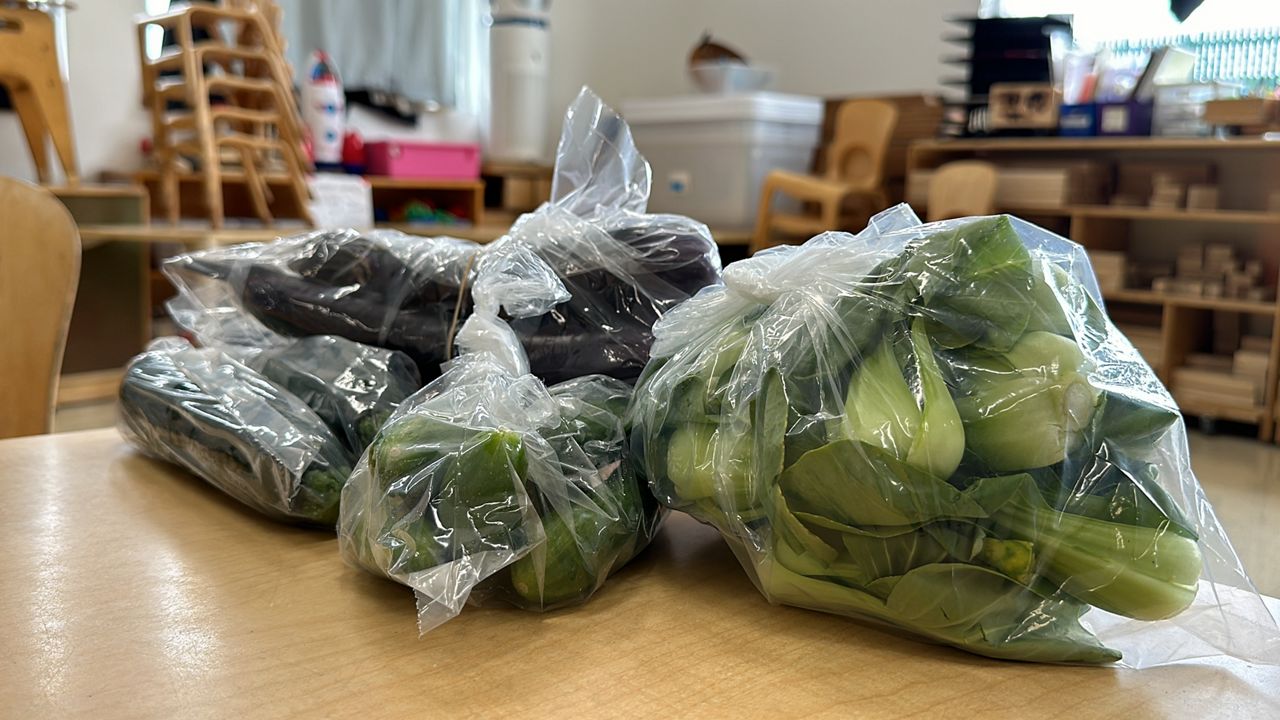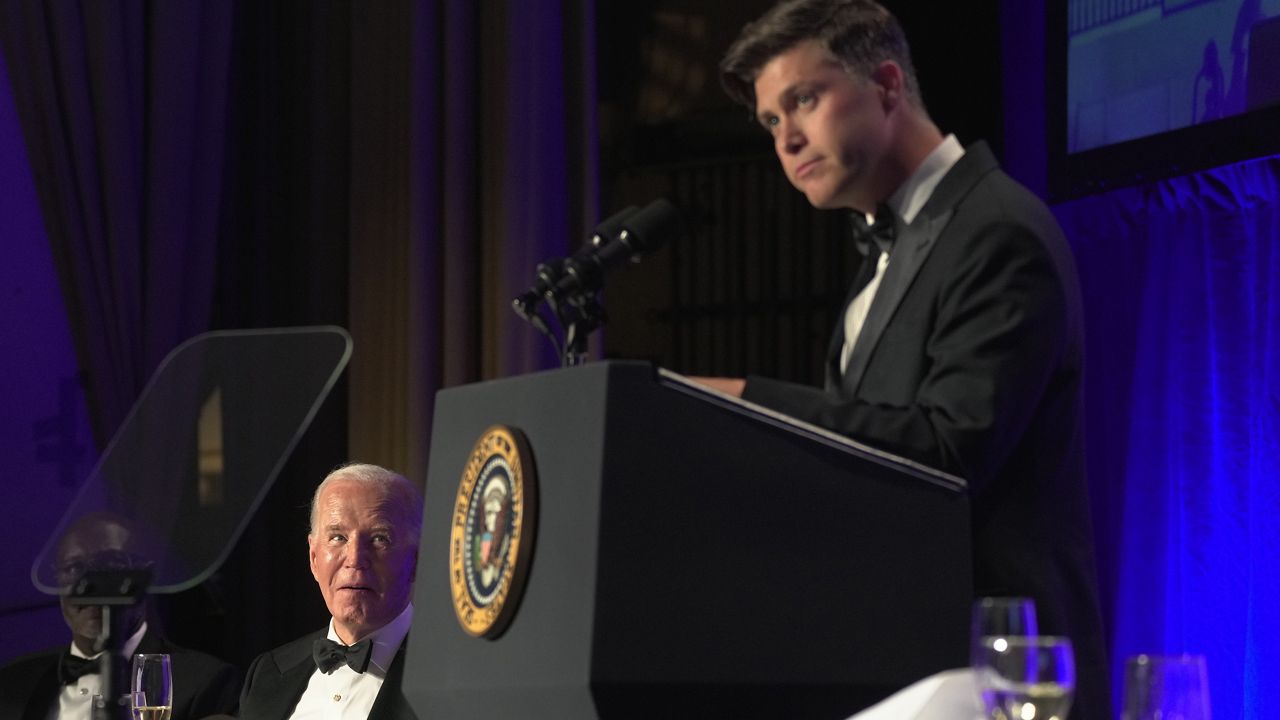LOS ANGELES, Calif. — Food is often at the center of many cultures, rooted deeply in traditions and used by many immigrant communities in the U.S. to stay connected to their heritage.
That is the case for Mina Park, who says food has allowed her to share a piece of herself with others.
"When I was growing up, my family was one of the few Korean families in our community. I grew up in a small town in Virginia and so sharing food was an amazing way where we could introduce people to what it means to be Korean," said Park.
She is again using food to ensure her son also knows about their culture.
"We live in the U.S., not in Korea, so this is one way we can really continue sharing our culture and continuing that with our family," said Park.
Kids Town, a preschool in Koreatown that Park's son attends, also shares the idea that food connects us.
The school already teaches Korean, Spanish and English, but it partnered with the Asian Pacific Islander Forward Movement to incorporate food into its efforts to highlight the diverse community.
Lyna Vuong, with the Asian Pacific Islander Forward Movement, hosts the Farm-to-School program at the school.
As part of the program, they have built a community garden at Kids Town, where Vuong teaches students about where food comes from and the importance of healthy eating. She also makes sure to tie in seasonal themes to the curriculum.
"We like to think about culturally relevant holidays and tie that into the lesson plan. So in the fall, for example, we'll talk about the mid-autumn festival or chuseok in Korean culture in the winter. We've tied in pickling activities, building on the, you know, pickling cultures that a lot of Asian cultures have," said Vuong.
But it doesn't stop in the classroom. The program also provides each student's family with a bag of produce every month, carrying a variety of culturally relevant produce along with a dozen eggs.
"Especially in Koreatown, I know that there is a lack of grocery stores nearby, especially for culturally relevant produce for some families. So having the opportunity to provide organic produce, especially grown locally, is so invaluable, and it's great for families to have that opportunity to access these foods that are fresh and healthy," said Vuong.
The Food Roots program coordinator, Freddy Ramos, explains that their partnerships with local farmers make the produce they deliver possible. He says it's a way to support them as well and shares the reactions they get from their parents are his favorite.
"Some of these produce items they haven't seen in a long time. So seeing them there, that genuine reaction of like, 'oh, yeah, we got bitter melon, Oh yeah, we got bok choy or we got daikon'. You know, it's just really brings joy to me," said Ramos.

However, given the diverse community that lives in the area and makes up the preschool, it's also a way for other parents to learn about their neighbors, as it has been for Kai Anderson.
"It's been invaluable as far as learning the cultures and the food. Also, because my son loves languages and loves just learning about geography and all that in general. I'm able to incorporate that into the cooking process," said Anderson.
She shares her son is also more likely to try the new foods knowing they come from his school.
Teacher Julia Uribe says she has noticed it even with the foods they eat inside the classroom.
"They are more willing to try because it's something that looks familiar. So we can see the richness that, you know, mixing all the cultures, whether it's through food or language, is enriching everybody's life," said Uribe.
And that experience is not only for the students. Anderson shares she had yet to hear of many of these vegetables before the program, but it is now something she looks forward to incorporating into her meals.
"It worked out really well because it's one less thing to shop for at the grocery store. And also I'm getting introduced to vegetables that I probably wouldn't have bought on my own because I'm a creature of habit. So when I see the different veggies, I'm able to either use the recipes that are provided or look online and find something to do with them," said Anderson.
That makes Park happy, knowing others are open to learning about other cultures.
"You know, it's a very diverse community. Not everybody is Asian American. And so just to share some vegetables, I hope people are enjoying them. But it's really important to us. It really feels, you know, food is so nourishing, our food is so important."










